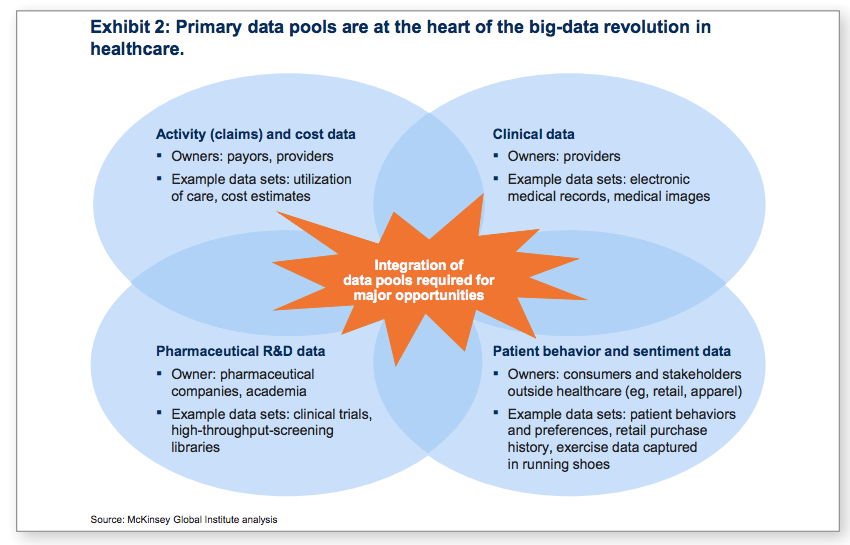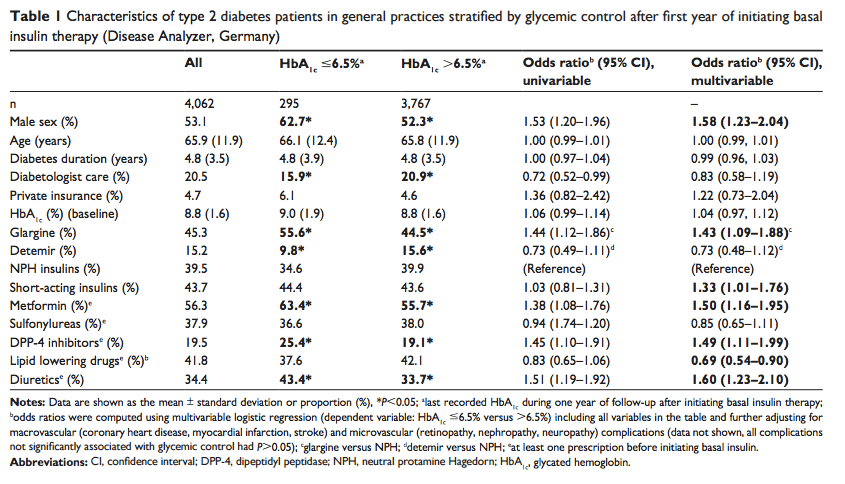IMS Health: using big data to improve healthcare outcomes

IMS Health’s products and services were used by pharmaceutical companies to develop commercialization plans, more recently IMS Health has expanded their focus –going beyond analyzing sales trends to improving patient outcomes and effectiveness data.
From retail to finance, many industries have already embraced the benefits of using big data. From trying to predict future purchases to optimizing product mix, companies use data analytics to improve sales through targeted advertising or dynamic pricing. The healthcare industry is no stranger to big data sets. Pharmaceutical companies have become experts in gathering massive amounts of data through clinical trials to prove the efficacy of their drugs to the Food and Drug Administration (FDA). In addition to clinical data, these companies also track prescription data from pharmacies to figure out a doctor’s prescription patterns or a patient’s preferences. Hospitals also collect extensive data through electronic medical records (EMR).
IMS Health is a company that provides information, services and technology for the healthcare industry. It was founded in 1954 by Bill Frohlich and David Dubow and it is the largest vendor of U.S. physician prescribing data. Initially, IMS Health’s products and services were used by pharmaceutical companies to develop commercialization plans, to select patient and physician populations for specific therapies, and to measure the effectiveness of marketing campaigns and sales resources. However, recently IMS Health has expanded their focus –going beyond analyzing sales trends to improving patient outcomes and effectiveness data.
An example of value capture: Sanofi’s Latus vs. German payor [1]
German payor, G-BA, had rejected coverage for Sanofi’s Lantus (glargine), a form of insulin, due to the higher price of the drug. IMS Health using their “Disease Analyzer” leveraged real-world research to counter its exclusion from the formulary. The Disease Analyzer assembles drug prescriptions, diagnoses, and basic medical and demographic data obtained from the practice’s computer systems. The objective of the study was to describe the predictors (clinical characteristics, medication) of glycemic control (strict criterion: HbA1c <6.5%) during the first year after initiating insulin therapy in primary care practices
Methodology: The study applied a retrospective approach using a nationwide database in Germany (Disease Analyzer, IMS Health, January 2008 to December 2011, including 1,024 general and internal medicine practices). Potential predictors of glycemic control considered were age, sex, duration of diabetes, type of basal insulin, comedication with short-acting insulin, baseline HbA1c, previous oral antidiabetic drugs, etc. Multivariable logistic regression models were fitted with glycemic control as the dependent variable.
Results: The study proved that the type of basal insulin (insulin glargine) was related to successfully achieving the target. First-year use of Lantus (glargine) was a statistically significant predictor of successful glycemic control and results in a 17% higher persistence of HbA1a < 6.5% and may delay the need for higher-priced intensive conventional therapy. Other statistically significant predictors were sex, diabetologist care, additional short-acting insulins, previous antidiabetic medication, and other comedication, eg, diuretics or lipid-lowering drugs
Using the real-world evidence provided through IMS Health, the German payor G-BA reversed its position. Sanofi has now secured contracts with more than 150 individual payors in Germany, covering about 90 percent of the German population.
So what’s next?
IMS Health is shifting strategies, from being the lead provider of prescription data, they are “harnessing anonymous patient-level data for better decision making” serving not only pharmaceutical companies but also helping hospitals and patient care providers make better informed decisions regarding formulary inclusion and expense management.
—
[1] Glycemic control after initiating basal insulin therapy in patients with type 2 diabetes: a primary care database analysis http://www.ncbi.nlm.nih.gov/pmc/articles/PMC4298311/pdf/dmso-8-045.pdf
[2] The ‘big data’ revolution in healthcare: Accelerating value and innovation http://www.pharmatalents.es/assets/files/Big_Data_Revolution.pdf
[3] IMS Health http://www.imshealth.com/en/solution-areas/real-world-evidence




